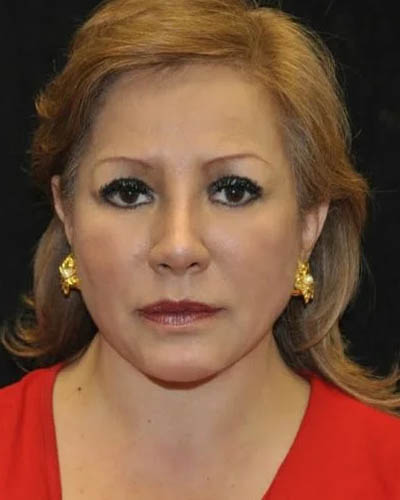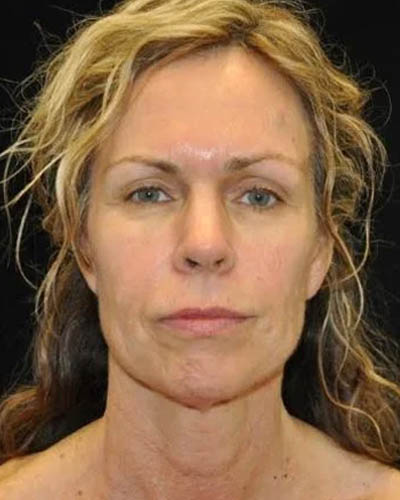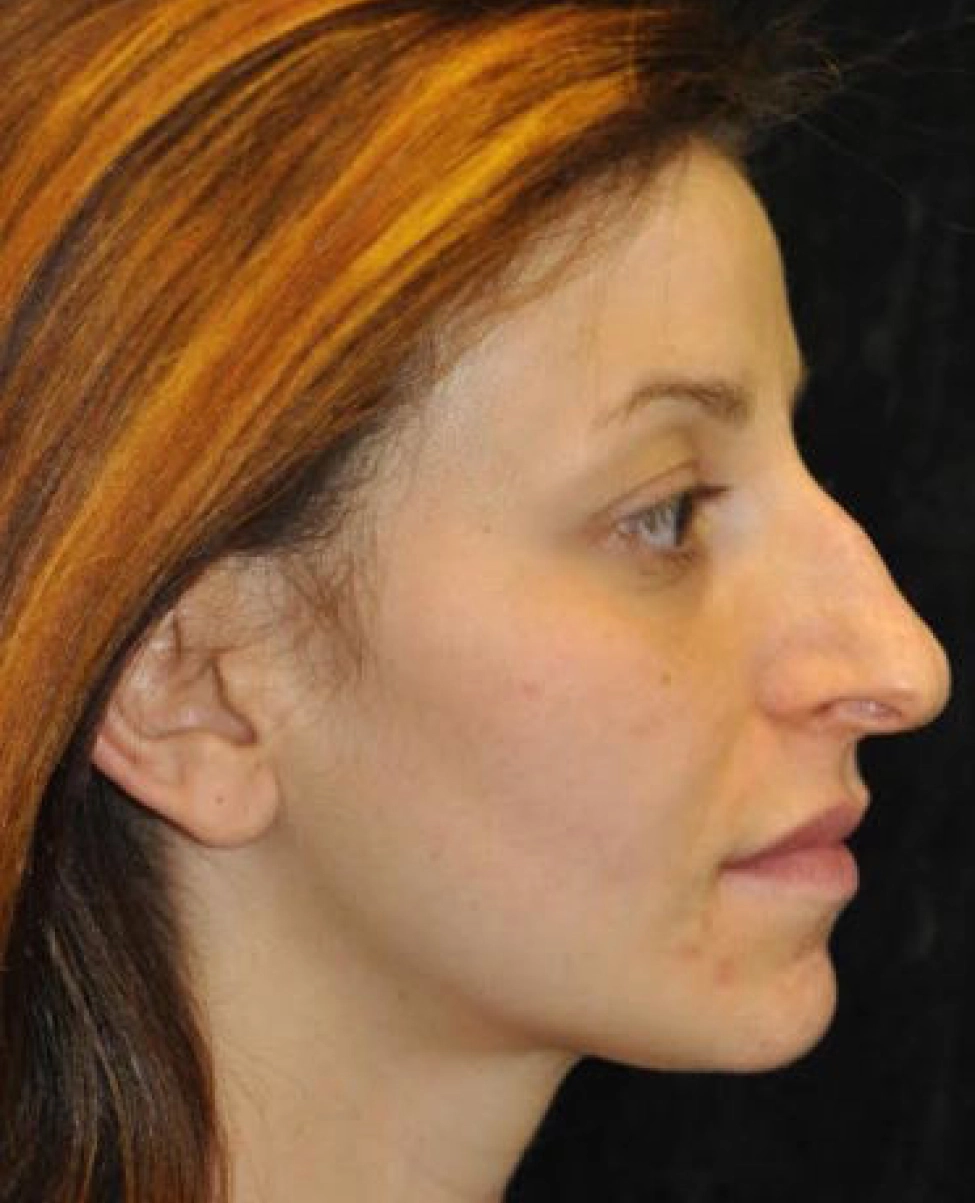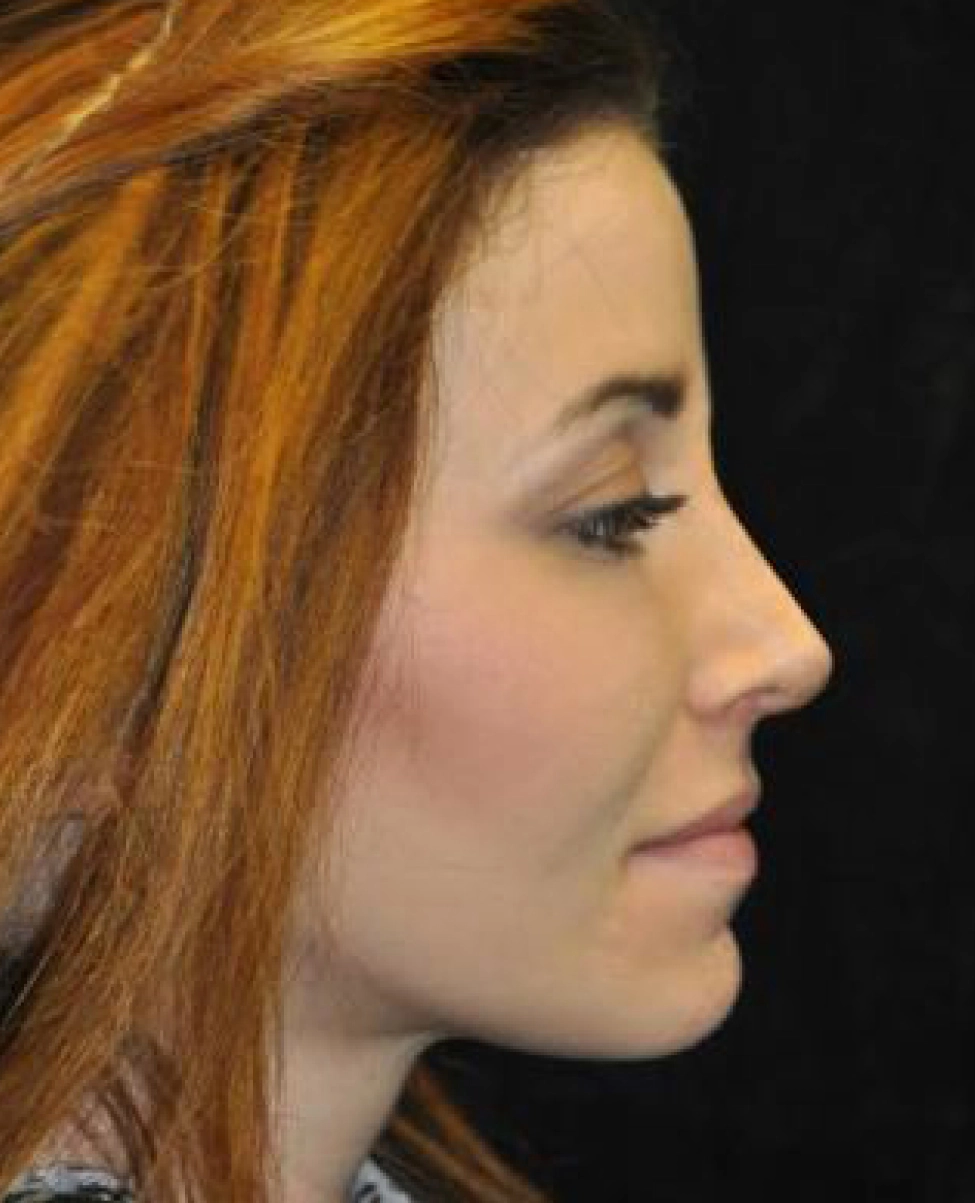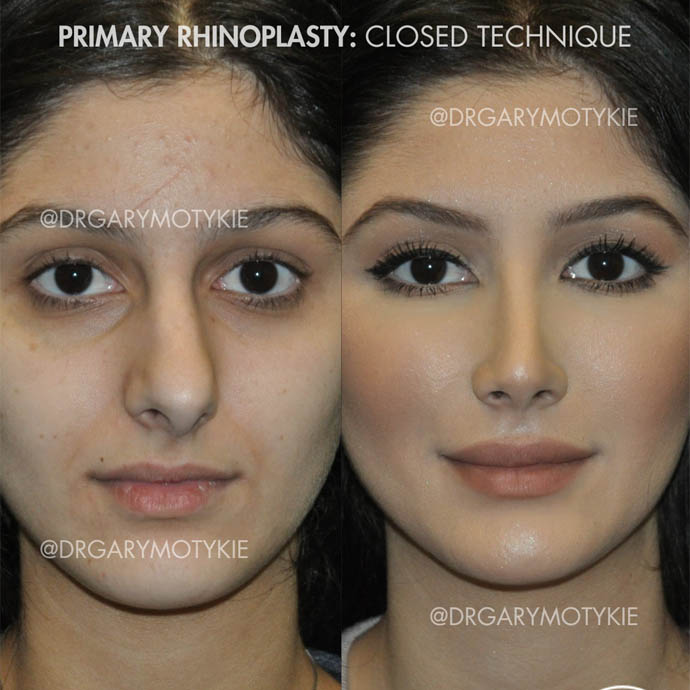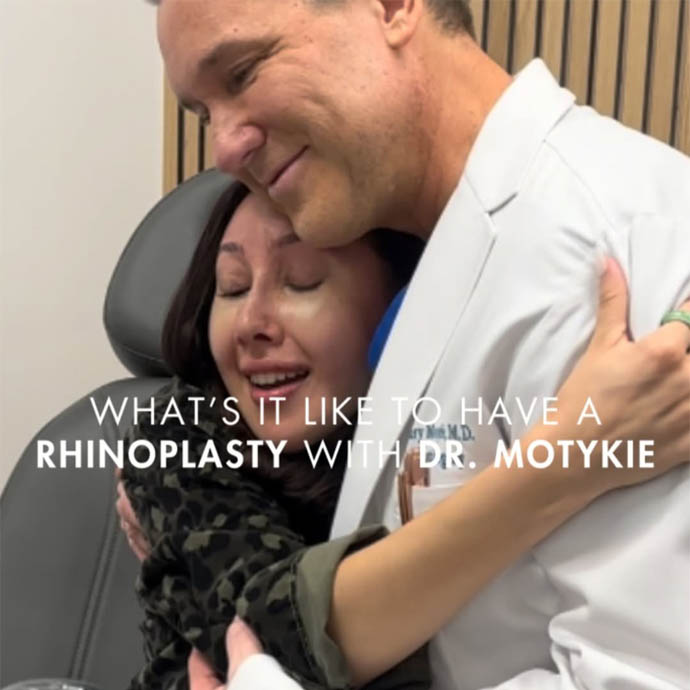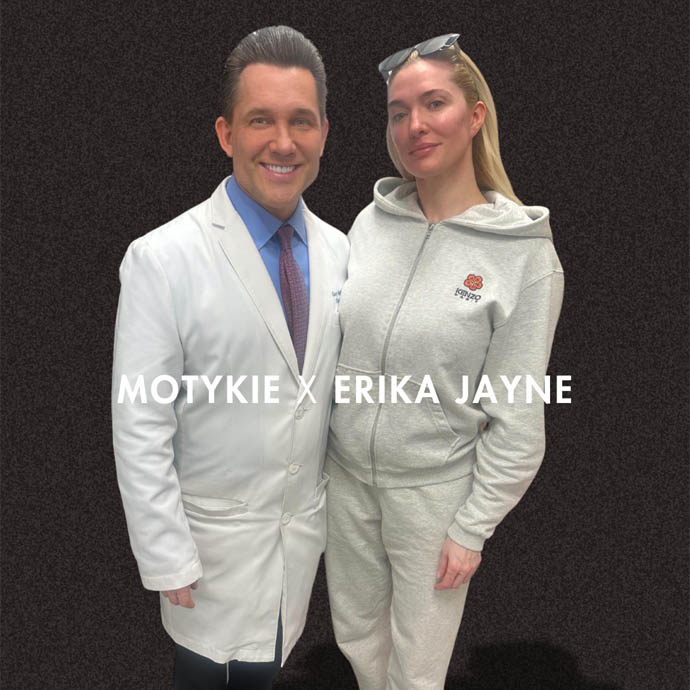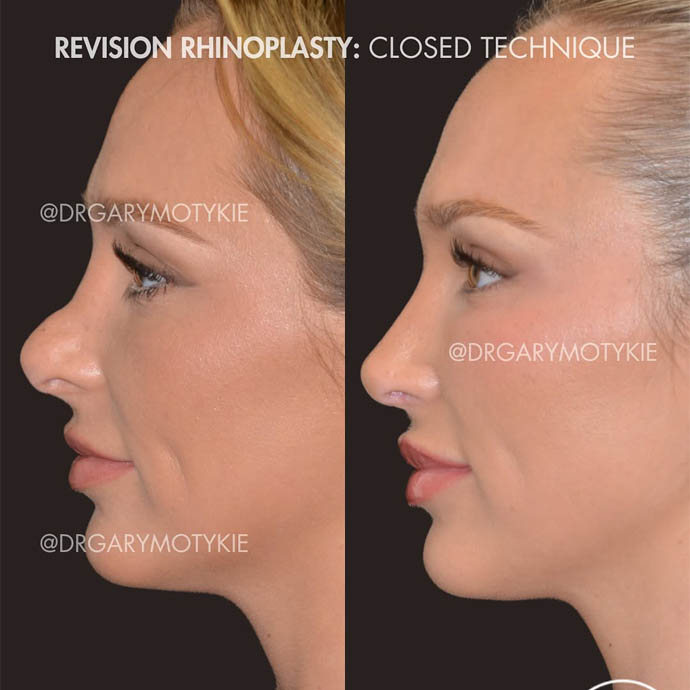By Gary Motykie, MD
What do you do in the medical spa?
My goal as director of the Motykie MedSpa is to give patient other treatment options besides plastic surgery to look and feel rejuvenated. The time has come to combine the East and West philosophies of cosmetic medicine and wellness. These professions have traditionally been seen as adversarial instead of symbiotic. I personally feel that these treatment modalities combined in tandem will amplify aesthetic outcomes and magnify patient’s beauty from within the body. The future of anti-aging is not in a capsule or a jar, its learning how to listen to our bodies and keep an open mind in regards to treatments that may offer benefits outside of the realm of tangible scientific evidence.
2. In a recent article you talked about the grouponization of anti-aging and wellness, how does this trend affect consumers and doctors?
As soon as medicine becomes a business, profits become more important than the patients. Unfortunately, like all of business, you will ultimately get what you pay for in the end. If a patient chooses to bargain shop for their wellness treatments by searching for deals and coupons, they may end up paying with their health which is far more devastating than paying a little bit more money for a quality service at a reputable doctor’s office.
3. You also mentioned the success of non-invasive technologies such as radio frequency, skin tightening, fat freezing and laser skin rejuvenation, have you heard of any new discoveries or technologies that surprise you recently?
There will always be a “new” technology on the horizon that is faster, cheaper and better. The real question is if the technology is effective and safe. I am not surprised by the “newest” technology but I am excited by the effectiveness and safety of the newer radiofrequency and laser devices that allow for visible results with minimal downtime. As we move into the future we may see an end of liposuction and facelift surgeries due to the rapid advances in skin tightening and cool sculpting technologies.
4. If a woman is thinking about having a plastic surgery, what are the three decision-making factors that she should consider?
There are three important questions to answer before undergoing cosmetic surgery: Is it right for me? How do I find a competent surgeon? Is the surgical facility properly equipped for safety?
To help figure out if plastic surgery is a reasonable option for you, take a hard look at yourself and determine if your goals are realistic. Plastic surgery can do many wonderful things, but there are limits.
Contrary to mainstream media, plastic surgery results should optimally be very natural and undetectable. It is not intended to make you look different, strange or like your favorite Hollywood movie star. What it can do is make you look younger, refreshed and more beautiful when performed for the right reasons. Make sure your motivation for surgery is based on how you feel about yourself and definitely not to satisfy someone else’s desires. No one else can see what you see when you look in the mirror and most friends and sometimes loved ones cannot understand why you would go through surgery when they love you just the way you are. Remember, contrary to popular belief, most successful plastic surgery is done in spite of social pressures, not because of them.
Now that you have made the choice to have surgery, how do you find a competent surgeon? There are many sources for locating a plastic surgeon including advertisements, televised media and the internet. However, while many excellent surgeons use these services to attract and inform patients, they are all also unregulated so they are typically more of an infomercial than a testament to the surgeon’s true skill set and experience. So don’t depend upon these sources alone. Check on the doctors training, board certification, society memberships and online reputation. The gold standard for surgeon credentials is certification by a specialty board that is a member of The American Board of Medical Specialties (ABMS). A board-certified surgeon has gone through extensive, well-regulated and monitored training, and has passed a set of rigorous examinations in order to be part of an elite group of highly educated, skilled and ethical doctors. There are many so-called “Boards” that are inventions of less-well-trained doctors in which the training is neither regulated nor monitored. These pseudo-boards are not recognized by the ABMS.
The main guardian of patient protection from incompetence is the hospital with which your doctor is affiliated. As many plastic surgery procedures are done in a surgical center or a well-equipped office surgery, check to see if the surgeon that you choose also has privileges to perform these same surgeries in a local hospital. Lastly, be sure that the operating facility where your surgery is to be performed is certified by one of three or four certifying organizations to be sure that it meets all safety standards. The major accrediting body is the American Association for Accreditation of Ambulatory Surgical Facilities (AAAASF).
5. If she is considering alternatives to a surgery, where can she start looking?
An accredited medical spa is a good place to start learning about alternatives to plastic surgery because they can offer non-invasive treatments such as Botox, injectables and lasers that can improve your appearance without the need for surgery or time off work. These “lunchtime” procedures offer quick results with minimal risk of swelling and bruising. There is even “lunchtime” liposuction now which is performed through freezing of the fat cells using the CoolSculpting system. The procedure takes about one hour to perform and is essentially painless. The newest radiofrequency skin tightening platforms also allow for alternatives to traditional facelifts and can help to tighten and smooth out the skin almost anywhere on the body without the need for surgery.
6. In your experience with women, does the skin type or ethnicity matter at the moment of having surgery?
Skin type and ethnicity can be a factor in deciding whether or not to have certain surgical procedures. The main issue is scarring due to the fact that darker skin tone patients may form thicker and/or darker scars (ie. hyperpigmentation). Prior to considering surgery most patients already now if they have problems with forming thicker scars based on how childhood scars healed as well as scars from other possible surgical procedures or such simple things as prior ear piecing. If you have a history of forming thicker and/or darker scars procedures such as breast lifts, tummy tucks or facelifts that involve longer scars should try to be avoided in favor of procedures that involve fewer scars. The good news is that scar prevention and treatment therapies have improved dramatically over the past several years so that even in patients that tend to form thicker scars combined treatment modalities have vastly improved the final appearance of many surgical scars.
7. What are the three most common risks of surgeries?
The three most common risks following surgery are discomfort, bruising/swelling and fatigue. Most other risks are very uncommon. You should expect some discomfort after surgery that can be elevated with commonly prescribed pain medications from your surgeon. Swelling and bruising after surgery is common and expected. Be sure to schedule enough time of off work to allow resolution of the majority of the swelling and some herbal products such as Arnica and Bromelien have been shown to speed up the healing process after surgery. Expect to be tired after surgery because your body is using its energy to heal itself. Make sure to get plenty of rest, drink lots of water and get up every once in a while to walk around for your piece of mind and to improve the circulation in your lower legs.
8. Is it possible to have the wrong motivations to have a procedure? In what cases is advisable not to have it?
While it is true that studies have shown that cosmetic surgery can improve self-esteem, you must have a realistic self-image to begin with. For instance, some patients have wanted a nose job since they were teens, a flaw has always bothered them, and now they want to correct it. A patient may want to reduce wrinkles with laser resurfacing later in life. These are examples of healthy motivations for surgery. Particularly if the patient has a strong sense of self to begin with, and this one aspect of his or her appearance is eroding their self-esteem. Other patients my just want a boost; they feel good about themselves but after doing their research have concluded a procedure would make them feel even better about themselves. For instance, a woman may want breast augmentation of one or two sizes to further enhance her beauty, or a breast reduction because of back and neck pain. A man may want a brow lift to look a bit younger. These too are realistic and healthy reasons for seeking elective surgery. Realistic expectations are the core of a healthy decision making process.
On the other hand, there are reasons, you may not want to seek cosmetic surgery. If you are in the middle of a crisis you may need to heal emotionally before you consider cosmetic surgery. Cosmetic surgery is never an answer to emotional turmoil. In fact, it is best to have a healthy mental outlook if you want cosmetic surgery. A good surgeon will likely dig a bit to find out the motivations behind you getting your “work” done. Why? It’s a major concern if a patient thinks having a stronger chin, smaller thighs, or a bump-less nose will usher a cheating ex (or a particular job promotion) into their corner. In fact, I turn down a fair number of people who come in for consultation, not because of their physical health, but because they have unrealistic expectations. For example, a woman may want a facelift because her husband is having an affair with a younger woman. I could do the surgery and get an amazing result but there’s a risk that she’s not going to be happy because I can’t give her what she truly wants which is her husband back.”
Your doctor also wants to know how much time you spend thinking about your appearance – is it more than an hour a day? Have you ever skipped a social event to “hide” yourself? And last, have you undergone multiple procedures (from different doctors) to “fix” areas like your hairline, nose, breasts, or belly? Affirmative answers to these questions may signal a deeper mental health issue, like body dysmorphic disorder (BDD). BDD is characterized by an unrelenting obsession to “fix” a perceived flaw that is often seen as minor or is even undetectable by others. Though the flaws may seem minor, those who suffer from BDD are experiencing real distress over their appearance — and this may drive them to never-ending hours of exercise, layer upon layer of makeup, avoidance (or obsession) with mirrors, and/or the nagging feeling that bigger implants or just one more syringe of Restylane will solve everything. Though BDD is a term that is somewhat carelessly thrown around popular culture today (much like OCD) it’s important to note that BDD is a relatively rare condition that affects only 5 to 15 percent of the population. Treatment for BDD happens outside of the operating room, and often includes medications and psychological counseling.
It’s normal for your physician to ask what brought you in, and I always encourage patients to bring in pictures of the results they desire. More than once I’ve had a patient bring in a picture of something that could never be achieved. I think the greatest source of unhappiness for a patient after plastic surgery is that of unrealistic expectations so a surgeon who is candid about saying they may not be comfortable performing your surgery is probably doing exactly what he/she was trained to do. Be a good doctor. Your surgeons job is to decide if what you want can realistically be done — and be done in a safe way with a high chance of success. Good surgeons turn down patients all the time. It’s the not-so-good ones who would be willing to do anything for a fee.
To see more services and treatments provided by Plastic Surgeon, Dr. Motykie in Beverly Hills | Los Angeles and his team please visit:

